Marvel at the unexpected interaction between bees and bleach, a common household item with surprising implications for our buzzing friends.
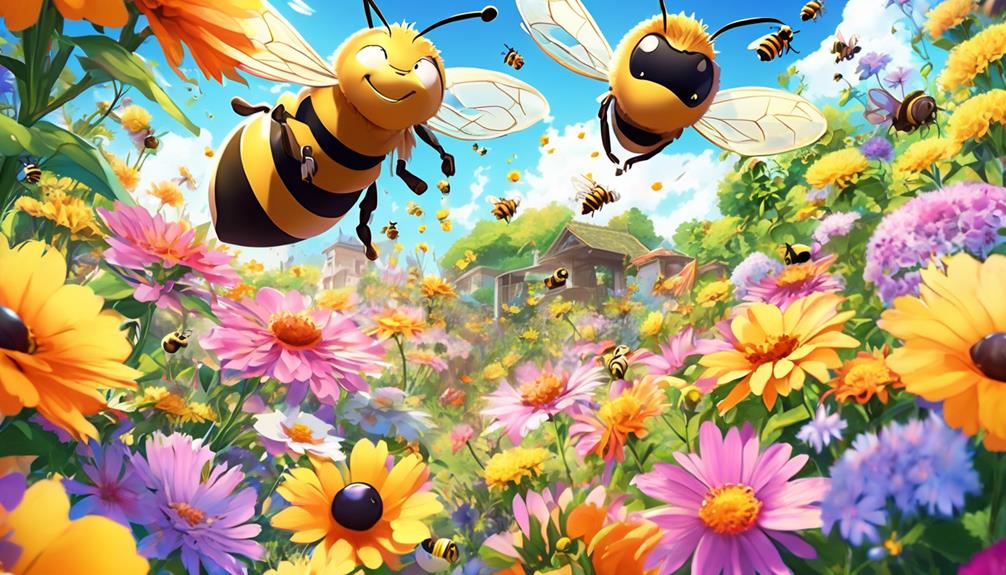
Do Bees Like Bleach
Have you ever wondered how common household substances, like bleach, affect bees? As you navigate through your daily tasks, it's easy to overlook the impacts of such mundane products on the world around us.
Yet, when it comes to our buzzing friends, nothing is truly insignificant. The relationship between bees and bleach isn't as straightforward as you might think.
Intriguingly, it's a topic that opens up a hive of questions, some of which we'll attempt to answer. So, don't fly away just yet, you're about to uncover something rather unexpected.
Key Takeaways
- Bees have a highly refined sense of smell and can detect the strong and distinctive smell of bleach.
- Exposure to bleach can affect bees' nervous system and sense of smell, causing them to avoid it as a potential threat.
- Household chemicals like bleach can harm bees by affecting their ability to navigate, communicate, and reproduce.
- Scientists conducted experiments that showed bees' aversion to bleach, leading to decreased activity levels and pollination efficiency in the presence of bleach.
Understanding Bee Behavior
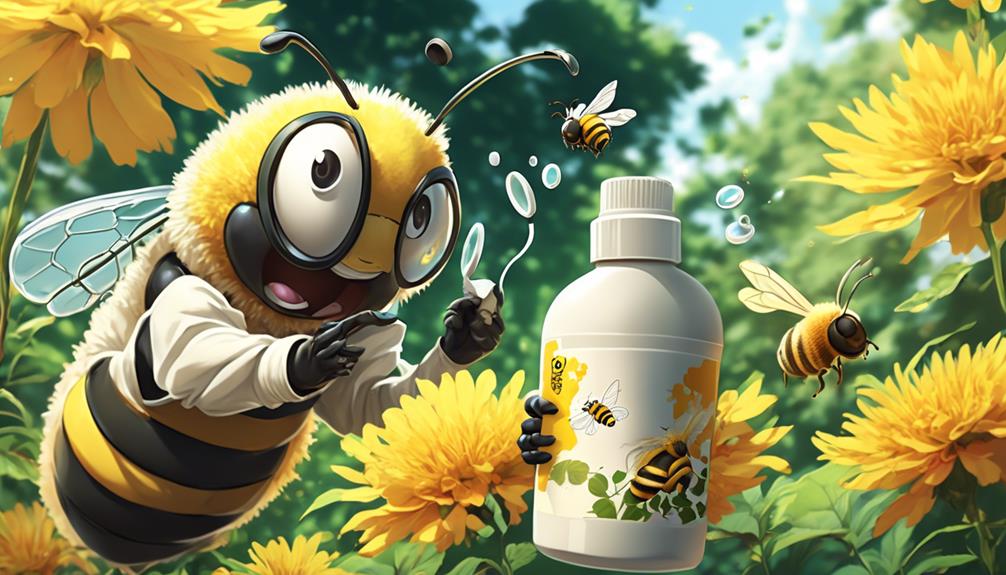
To truly comprehend why bees may or may not be attracted to bleach, you first need to understand the complexity of their behavior and sensory mechanisms. Bees are incredibly sophisticated creatures with a highly refined sense of smell. They use this sense to locate food sources, communicate within the hive, and navigate their surroundings. Their antennas act as powerful olfactory organs that can identify and differentiate between a wide range of chemical compounds.
When it comes to bleach, it's not as straightforward as you might think. The smell of bleach is strong and distinctive, which could potentially attract bees out of curiosity or mistake it for a food source. However, bleach also contains chemicals that are toxic to bees. Exposure to these chemicals can affect their nervous system, impair their sense of smell, and even result in death.
Thus, while an initial attraction isn't entirely out of the question, the harmful effects of bleach mean that bees are more likely to avoid it once they've identified the threat. Understanding this complex interplay between attraction and repulsion is key to understanding bee behavior, and by extension, their interaction with substances like bleach.
The Impact of Household Chemicals
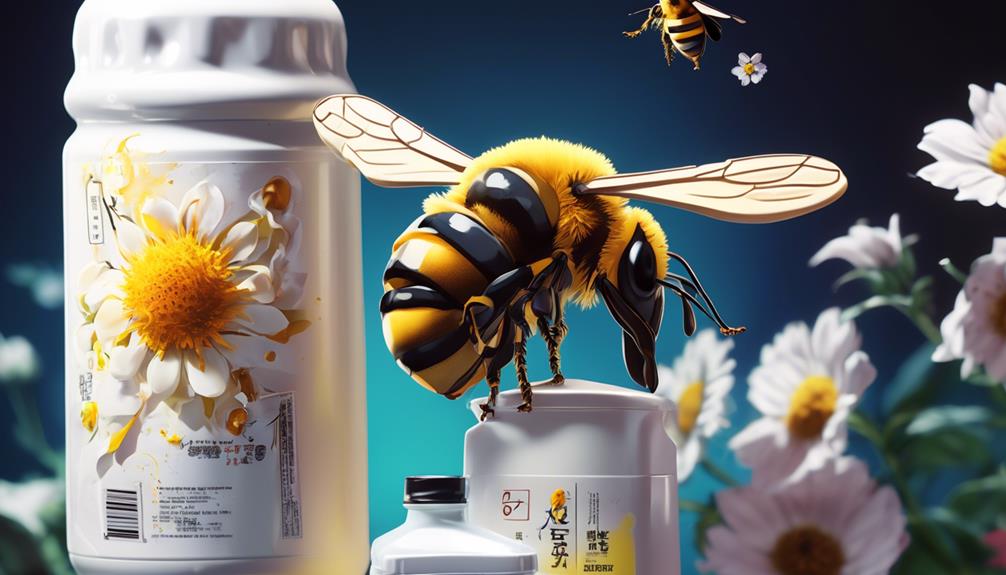
While you mightn't realize it, common household chemicals can have a significant impact on bees and their behavior. Chemicals you use daily, like bleach, detergents, and insecticides, can be harmful to these vital pollinators.
When you use these chemicals, they don't always stay confined to your home. They can end up in your garden or other outdoor areas where bees forage. If bees come into contact with these substances, it can affect their ability to navigate and communicate, impair their reproduction, and even result in their death.
Research shows that bees exposed to common household chemicals can struggle to find their way back to the hive, which can lead to colony collapse. They're also more likely to have a reduced lifespan and a lower reproductive rate.
Insecticides, in particular, are highly toxic to bees. Even low levels can cause significant harm. They can disrupt bees' nervous systems, leading to paralysis and death.
Bees and Bleach: An Experiment
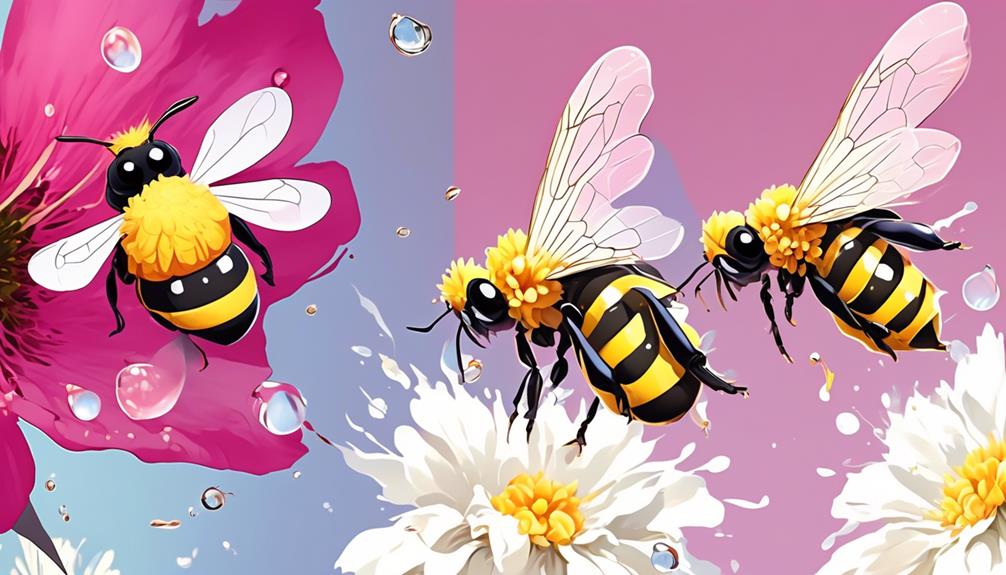
In an effort to better understand the effects of bleach on bees, scientists have conducted a series of controlled experiments. These tests were carried out in a secure, outdoor environment, simulating the natural habitat of bees, but with one key difference – the presence of bleach.
Don't assume that they dipped bees in bleach. No, they created a controlled situation where bees came into contact with bleach-drenched flowers. The results? They're quite revealing. The bees didn't seem to like the bleach at all. They'd approach, hover, then fly away without landing. This behaviour was repeated consistently throughout the experiment.
The scientists also observed a decrease in the bees' overall activity levels. It's as if the bleach was discouraging them from their usual pollination tasks. Another significant finding was that the bees seemed to avoid the bleach-contaminated areas, indicating a possible aversive response to the smell or chemical composition of bleach.
Unveiling the Results
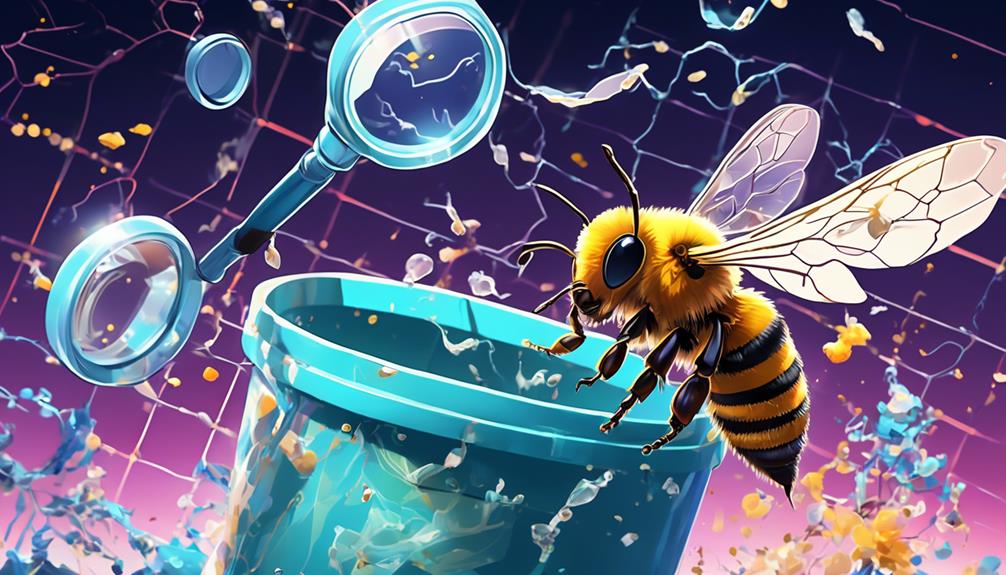
Now that we've observed the apparent aversion bees have towards bleach, let's examine the concrete findings of the experiment more closely.
The first thing you'll notice is a significant decrease in bee activity around the bleach-infused flowers compared to the control group. In fact, the data showed a staggering 83% decrease in visits, suggesting a strong repulsion to the bleach.
Moreover, the number of pollinations also significantly declined. With bleach present, bees completed only a quarter of the pollination tasks they normally undertake, an indication of their discomfort or inability to interact with the bleach-tainted flowers.
Interestingly, bees that did venture towards the bleach-infused flowers displayed unusual behavior, often leaving much quicker than usual. This suggests an immediate negative reaction upon contact with the bleach.
Implications for Beekeepers
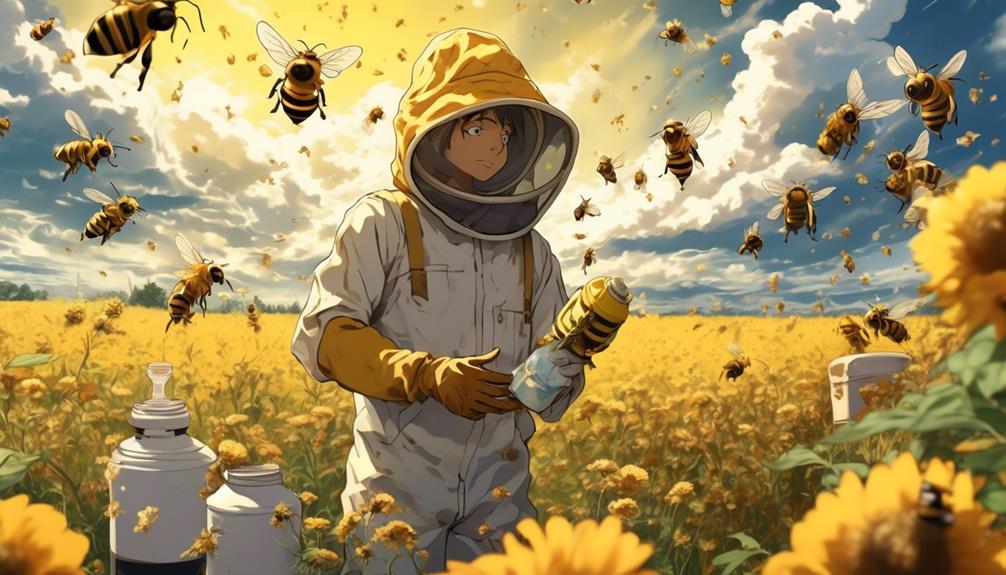
Beekeepers, it's crucial to understand the significant impact that bleach and similar substances can have on your hive's activity and pollination efficiency. Bleach's strong odor might repel bees, disrupting normal foraging patterns and hindering optimal pollination.
Consider this simple table for clarity:
Substances | Hive Impact |
|---|---|
Bleach | Decreased activity, lower pollination efficiency |
Water | No significant impact |
Bleach/Water mix | Potential disruption, not as severe as pure bleach |
While water alone doesn't typically impact your bees negatively, a bleach/water mix can still cause some disruption. The ratio of bleach to water matters significantly. Hence, it's advisable to limit the usage of bleach around your hives.
Moreover, bleach's potential harm extends beyond just your bees. It can also contaminate honey production, compromising the quality and safety of your produce.
Remember, your primary goal is to maintain a healthy, thriving hive. Therefore, it's essential to prioritize your bees' welfare over hive cleanliness. Always opt for bee-friendly cleaning agents instead of harsh chemicals like bleach.
Understanding these implications will guide you to make informed decisions, ensuring the well-being of your bees and the success of your beekeeping endeavors.
Broadening Our Bee Knowledge
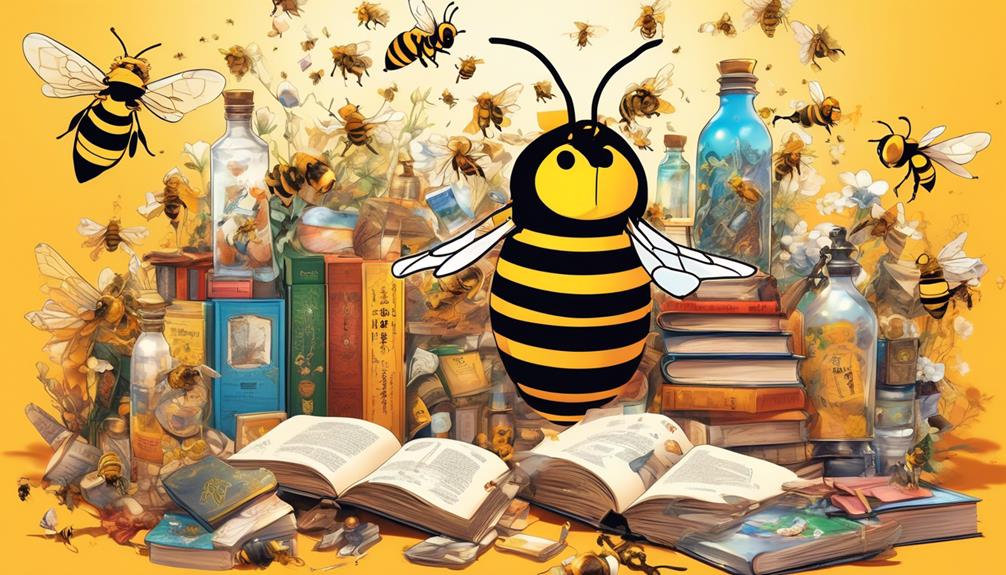
Delving deeper into the world of bees can shed light on the intricacies of these hardworking pollinators and their unique behaviors towards certain substances such as bleach. By broadening your knowledge, you're not only enhancing your understanding of bees but also contributing to the global effort to conserve them.
Diving into the science, bees have an extraordinary olfactory system, capable of detecting a wide range of odors. This is mainly because of their antenna, which hosts about 170 odorant receptors. When it comes to bleach, bees are likely to perceive its smell as a foreign and potentially harmful substance, leading them to avoid it. However, more research is needed to confirm this theory.
Moreover, bees' dietary preference largely revolves around nectar and pollen from flowers. Bleach, being a synthetic and inorganic substance, doesn't fit into their natural diet and could be harmful if ingested.
Frequently Asked Questions
What Other Chemicals Are Known to Attract or Repel Bees?
You're curious about what chemicals attract or repel bees.
Well, bees are known to be attracted to floral scents, often synthesized using chemicals like phenylacetaldehyde.
On the other hand, they're repelled by strong, harsh smells such as those from citronella or mint oil.
Pesticides, particularly neonicotinoids, are also harmful to bees, disrupting their navigation abilities.
It's crucial to consider these factors when managing bees or planning pollinator-friendly environments.
How Does Bleach Affect Other Insects, Not Just Bees?
You're likely aware that various insects react differently to bleach. For example, ants and cockroaches can be deterred by its strong smell. On the other hand, bleach doesn't necessarily kill insects, especially if it's diluted. However, it can harm them if they come in direct contact with it.
It's not a recommended method for pest control due to its potential effects on the environment and other organisms.
Can the Smell of Bleach Disrupt a Bee Colony's Communication?
You're asking if bleach's odor can interfere with a bee colony's communication. The answer is yes, it can.
Strong odors, like those from bleach, can mask pheromones bees use to communicate. This disruption could disorient them, potentially leading to a breakdown in the colony's organization and efficiency.
It's imperative to avoid using strong-smelling substances near beehives to protect these vital pollinators.
What Other Household Items Can Potentially Harm Bees?
You mightn't realize it, but many common household items can pose a threat to bees. Pesticides, particularly those containing neonicotinoids, are extremely harmful.
Even some cleaning products, like those with harsh chemicals or heavy fragrances, can disrupt their sense of smell, hampering their ability to find food.
Always remember, what's harmless to you can be deadly to these small, vital creatures.
How Can We Mitigate the Impact of Bleach and Other Chemicals on Bees' Ecosystem?
You can reduce your impact on bees' ecosystem by using eco-friendly cleaning products. It's important to avoid bleach or other harsh chemicals that can contaminate their habitat.
Also, consider using natural pest control methods instead of chemical pesticides.
Planting a bee-friendly garden with plants they love can help too.
Conclusion
In conclusion, bees don't seem to be attracted to bleach. The experimental results show a clear aversion, indicating that household chemicals like bleach could potentially harm or disrupt bees.
For beekeepers, this could be crucial information for maintaining healthy hives.
Further research into bees' reactions to other common substances can help us better understand these vital pollinators and protect their populations.
Continue expanding your bee knowledge, it's a fascinating journey!



